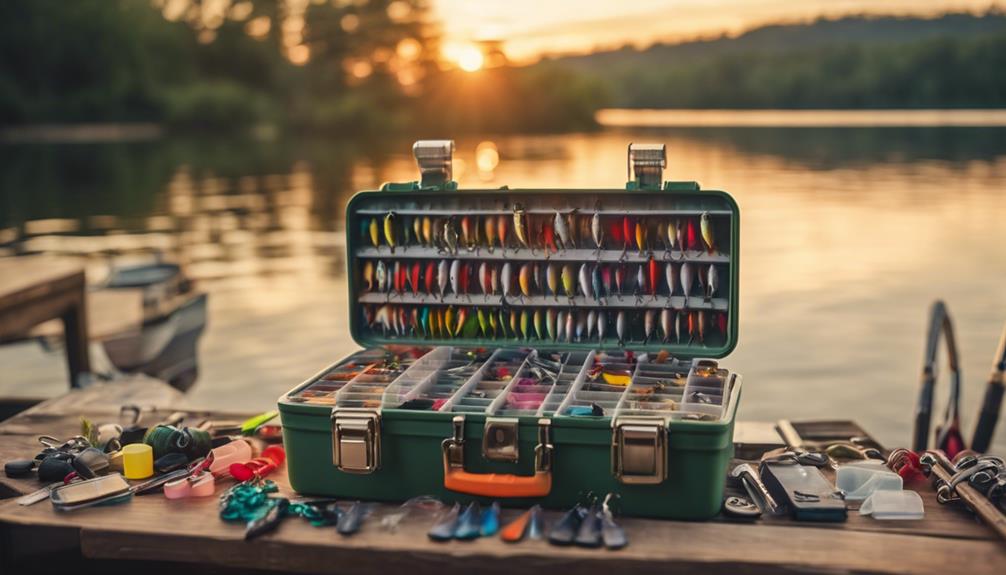Fishing is a beloved pastime for many, offering relaxation and a chance to connect with nature. However, before you grab your fishing rod and head to the nearest lake or river, it’s essential to understand the regulations regarding fishing licenses. One of the most common questions asked is, “What age do you need for a fishing license?” This post will provide comprehensive information on fishing licenses, age requirements, and additional factors you should consider before casting your line.
Understanding Fishing Licenses
Fishing licenses are permits issued by state wildlife agencies that allow individuals to fish in public waters. They are essential for managing fish populations and ensuring sustainable fishing practices. Each state has its own regulations regarding who needs a fishing license, what age one must be to obtain a license, and any exceptions that may apply. For most states in the U.S., individuals above a certain age are required to have a fishing license, while younger individuals may fish without one or under specific conditions.
Age Requirements for Fishing Licenses by State
The age at which you need a fishing license varies significantly from state to state. Generally, most states require individuals aged 16 and older to obtain a fishing license. However, some states allow residents under this age to fish without a license, providing they are accompanied by a licensed adult. For example, states like Texas and Florida have specific exemptions for younger anglers, allowing them to fish without a license if they are under the age of 16. Always check your local regulations to determine the exact age requirements for fishing licenses in your state.
Special Considerations for Youth Fishing
Many states offer youth fishing programs designed to encourage children to learn about fishing and conservation. These programs often include special fishing days when young anglers can fish without a license. Some states even provide free or discounted licenses for minors, making it easier for families to introduce children to fishing. Additionally, organizations like the Future Fisherman Foundation offer resources and events aimed at teaching kids about fishing and the environment. If you’re introducing your child to fishing, take advantage of these programs.
Temporary Fishing Licenses and Permits
For those who are just visiting a state or are uncertain about their fishing habits, many states offer temporary or short-term fishing licenses. These licenses can range from a day to a week and are an excellent option for tourists or casual anglers. Generally, the age requirement for temporary licenses aligns with that of permanent licenses—typically 16 years and older. However, checking with the local wildlife agency is crucial to ensure compliance with any specific regulations.
Fishing License Exemptions
In addition to age exemptions, some states have various exemptions that allow individuals to fish without a license under specific circumstances. For example, many states hold free fishing days, during which residents and visitors can fish without a license. These events promote fishing as a recreational activity and encourage people to try it out without the commitment of purchasing a license. Additionally, certain groups, such as veterans, active military personnel, or individuals with disabilities, may also qualify for exemptions or reduced fees. Always check local regulations for any applicable exemptions that may apply to you or your family.
The Importance of Obtaining a Fishing License
Obtaining a fishing license is crucial for several reasons. Firstly, it helps fund conservation efforts and the maintenance of fish habitats, ensuring that fish populations remain sustainable for future generations. Fishing licenses also support local economies by contributing to wildlife management and recreational opportunities. Furthermore, fishing without a valid license can lead to fines and legal repercussions, making it essential to understand the regulations in your area. By obtaining a fishing license, you are not only complying with the law but also supporting conservation efforts.
How to Obtain a Fishing License
Getting a fishing license is a straightforward process that can typically be completed online, over the phone, or in person at designated locations such as sporting goods stores or local wildlife offices. To obtain a fishing license, you will generally need to provide personal information, including your name, address, and date of birth. Some states may require proof of residency or completion of a fishing education course, especially for first-time applicants. Payment options vary by state, and you can often choose between digital and physical licenses.
Final Thoughts on Fishing Licenses
In conclusion, understanding the age requirements and regulations surrounding fishing licenses is critical for anyone looking to engage in this enjoyable activity. While the general rule is that individuals aged 16 and older need a fishing license, specific exemptions and programs exist for younger anglers. By obtaining the appropriate fishing license, you contribute to conservation efforts and ensure a sustainable future for fishing. Be sure to check the regulations in your state or locality, as they can vary significantly. Whether you’re fishing for fun or competition, knowing the rules will enhance your experience and help you appreciate the great outdoors responsibly.
By being informed about what age you need for a fishing license and taking the necessary steps to obtain one, you can enjoy fishing while supporting the vital work that keeps our waterways healthy and thriving. Happy fishing!
